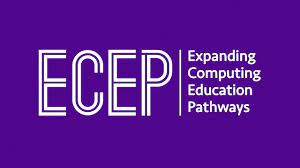Computer Science for All Students in NC
IGNITING THE TECH WORKFORCE PIPELINE ACROSS ALL OF NORTH CAROLINA
Launched in 2016, CS4NC is the North Carolina chapter of the Expanding Computing Education Pathways (ECEP) Alliance – a consortium of states dedicated to increasing equitable capacity for, access to, participation in, and experiences of computing education for students across K-12 and higher education. Founding members of CS4NC included representatives from the Friday Institute for Educational Innovation at NC State’s College of Education, the NC Department of Public Instruction, the UNC-Charlotte College of Computing and Informatics, the NC State Department of Computer Science, and the Computer Science Teachers Association. Since its inception, new members from the state’s community college system, local school districts, and industry have joined the alliance to help increase awareness of computer science education and coordinate activities and initiatives that will help us grow our networks of educators and computing industry professionals alike.
CS Job Opportunities
75%
of all jobs will require a background in computer science by 2040.
28,000
Open tech jobs in North Carolina, with many being filled by workers trained in other fields.
Why CS?
Computer science is impacting every aspect of our lives. From social media to the rise of artificial intelligence, our society is being changed by innovations and developments in technology and computer science and we will leave our students behind or simply uninformed if we do not educate them in these fields. The State of Computer Science report from 2022 showed that there were over 22,000 open computer jobs each month in North Carolina, yet there were only 2,332 graduates in computer science. The average salary for these jobs was $92,273. Without exposure to computer science, these jobs will continue to go to people outside of our state, leaving our students excluded from high-paying and fulfilling careers.
Computer Science education is also shown to benefit students who will not seek out a career in computer science. Studies show that students who study computer science outperform students in math, creative thinking, and reasoning. A Code.org study by the college board also found that students who study computer science perform better on math AP tests.
Whether students plan to go into a computer science field or not, the benefits of CS education are clear: the critical and creative thinking skills that students receive in a computer science program will benefit them regardless of the fields they pursue.
Partners





